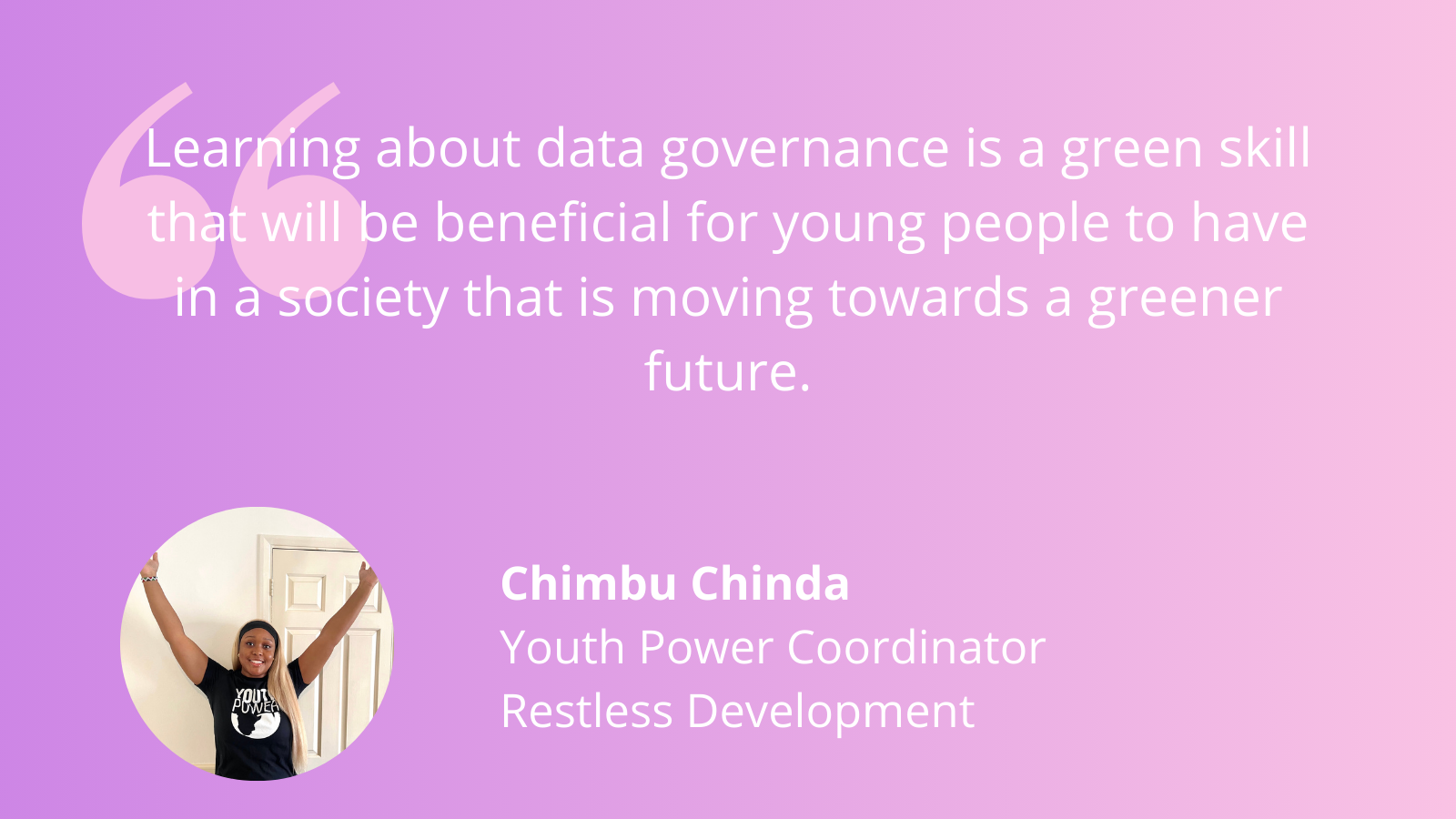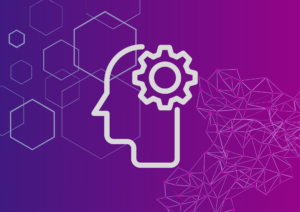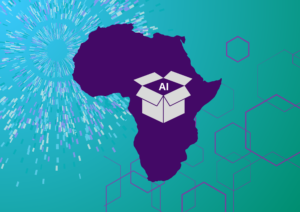On the occasion of International Youth Day, the Datasphere Initiative spoke to a range of youth activists, and young professionals to ask them why leveraging youth voices is important in efforts to unlock the value of data, and how can education on data governance equip youth globally with the skills they will need to promote a greener future?
Chimbu Chinda, Youth power coordinator at Restless Development, emphasizes the relevance of capturing youth perspectives on issues that matter to them and incorporating them into policy and practice.
Read more about the campaign and other contributions here.
There are 1.2 billion young people across the world who are unique, bold, innovative, and care about their future, yet they are often excluded in the decision-making processes of global issues that affect them. New technologies and progress have many positive impacts on the lives of young people around the world, however, there are also negative consequences and threats to their rights and freedoms. Who better to hear from than the young people themselves about how they use data and how it affects them. Young people can identify findings where others have ‘blind spots’.
Many young people (67%) are being left behind due to a lack of access to technology, as a result of poverty, insufficient infrastructure, or a lack of overall understanding. Learning about data governance is a green skill that will be beneficial for young people to have in a society that is moving towards a greener future. If we as young people understand how to use data that’s accurate and available, as well as feel comfortable with the security and curation of data we can use it to implement sustainable ways of living in our communities.
Chimbu Chinda is a Youth power coordinator at Restless Development, leading the Youth Stop AIDS campaign as well as UK-Wide work with Young activists. She is passionate about equipping young people with the skills and resources to tackle global issues surrounding health equity, HIV, Digital health and health education through advocacy and campaigning. But specifically focusing on those issues that affect young people and their communities.




